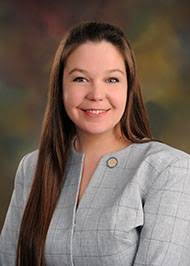The Kansas Policy Institute is lobbying against linking property tax breaks for health clubs to a bill requiring more public disclosure on property tax bills.
The conservative-leaning group warned lawmakers that adding the property tax exemption for fitness centers to the so-called property tax transparency bill would give it a negative score on its Freedom Index, according to an email sent to legislators.

“I’m writing to clear up some possible misunderstanding of our position on the property tax exemption request for health clubs,” wrote David Trabert, chief executive officer of KPI.
“Some people assume we support the exemption for a variety of reasons, but that’s not correct,” Trabert wrote in the email sent to members of the House Tax Committee.
“Kansas Policy Institute opposes the health club exemption and we would give it a negative score on our Freedom Index if added to the bill.”
Trabert said the property tax exemption would put the legislation at risk of being vetoed a second time by Democratic Gov. Laura Kelly.
“Exempting anything, whether health clubs, tax increases from new construction or anything else, may give some legislators a reason to oppose the bill,” Trabert wrote.
“Exempting health clubs most certainly gives Gov. Kelly cover to veto the bill,” he wrote.
“And as we learned from the tax-lid legislation, exemptions only invite a parade of future exemption proposals that would materially undermine the purpose of local officials having to be honest about the entire tax increase they impose,” he said.
Last week, former Republican Congresswoman Lynn Jenkins, representing the Kansas Health and Fitness Association, urged the committee to add the property tax exemption for the health clubs to the bill.
Jenkins asked lawmakers to put the for-profit health clubs on the same level as nonprofit and government-owned gyms that don’t pay taxes.
She argued that local government-operated health clubs have spent millions on new facilities, forcing nearby private sector competition out of business because of an uneven playing field for taxes.
The fitness association’s board members include Genesis Health Clubs Inc. of Wichita, which is owned by Rodney Steven.
In 2013 and 2014, Steven, a frequent contributor to Kansas lawmakers, pushed similar legislation that ultimately failed.
As currently drafted, the bill requires more public disclosure when local governments collect extra tax dollars from rising property values.
Already passed by the Senate, the bill requires local governments to hold hearings and vote to accept extra revenues coming from increased property values even if the tax rate remained steady.
KPI has supported the transparency bill and Trabert said in an interview he would welcome a discussion about private businesses – not just health clubs – that are at a competitive disadvantage with government.
“We certainly agree with the policy position that the Health and Fitness Association has been put at a competitive disadvantage with government,” he said.
“There’s just a concern that adding it to the bill would maybe give the governor cover to veto it,” he said.
Republican state Rep. Adam Smith, chair of the House tax committee, said the private health clubs make a “legitimate claim.”
Smith said he would prefer to vet the health club proposal independently, but didn’t know how it would play out this session.
“In an ideal world, every single issue would come before us as a single issue and we would have to deal with it and debate it on the merit of that issue,” he said.

“But that’s not the way the process works though,” he said. “We’ll see if it comes as an amendment. If not, I’ll look for an individual bill to address the matter.”
Democratic state Rep. Stephanie Clayton said she didn’t think the health club tax was relevant to the property tax bill.
“If they want to do it, they should have a hearing just like everybody else,” Clayton said.
“They just brought it in as an amendment. There seems to be a sense of entitlement that is improper,” Clayton said.
“Anyone is free to bring business before the legislative body, but they should bring it as a separate bill with a full hearing so everyone can provide input.”
















